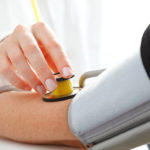It’s worth noting that Red wine contains powerful antioxidants, and research has proven that drinking red wine is good for health. However, consuming lots of it (red wine) may cause serious problems to your health.
Here are some lists of the health benefit that comes from drinking red wine.

Red wine has been part of social, religious, and cultural consumable items for centuries. Previously, people don’t take red wine as they do these days due to a lack of information about the stuff. However, many have realized that red wine offers a lot of benefits for health, particularly alongside a balanced diet.
In recent years, science has indicated that there could be truth in these claims.
Although there are no official recommendations around these benefits, a 2018 studyTrusted Source notes that drinking red wine in moderation has positive links with:
- cardiovascular disease
- atherosclerosis
- hypertension
- certain types of cancer
- type 2 diabetes
For more information about drinking in moderation.
How might red wine improve health?
Red wine may have Trusted Source health benefits because of its antioxidant, anti-inflammatory, and lipid-regulating effects.
Red wine, which people make from crushed dark grapes, is a relatively richTrusted Source source of resveratrol, a natural antioxidant in the skin of grapes.
Antioxidants reduce oxidative stress in the body. Oxidative stress has clear links with many diseases, including cancers and heart disease.
There are many healthful antioxidant-rich foods, including fruits, nuts, and vegetables.
Whole grapes and berries are better sources of resveratrol than red wine, and because of the health risks linked with drinking alcohol, getting antioxidants from foods is likely to have more health benefits than drinking wine.
People may need to drink a lot of red wine to get enough resveratrol to have an effect. However, this can do more harm than good if proper care is not taken.
Having said above, when choosing between alcoholic beverages and red wine. Be it known that red wine may be a better choice than white wine or any other form of hard liquor.
The following sections take a closer look at the possible health benefits of red wine.
For more information about the benefits and risks of drinking red wine.
Cardiovascular health
Many studies have shown a positive link between moderate red wine drinking and good heart health.
Recently, a 2019 review trusted Source reported that drinking red wine is linked with a lower risk of coronary heart disease, which is a leading cause of disease and death in the United States. The authors concluded that red wine might have cardioprotective effects.
However, the American Heart Association (AHA)Trusted Source states that it is unclear if there is a cause-and-effect relationship, and other factors may play a role. For example, people who drink red wine in moderation may also follow a more healthful lifestyle or eat a Mediterranean diet.
The AHA also explains that excess alcohol can directly harm the heart. To stay safe, people should follow official guidelines from the Centers for Disease and Prevention (CDC)Trusted Source, which define moderate drinking as:
- 1 glass of wine per day for females
- 2 glasses of wine for males
One glass of wine is 5 ounces (oz) of 12% alcohol by volume.
For more information about cardiovascular health.
Gut health
A 2018 studyTrusted Source reported that red wine and grape polyphenols might improve gut microbiota, contributing to a healthy gut.
This is because red wine polyphenols may also actTrusted Source as prebiotics, which are compounds that boost healthy gut bacteria.
However, the research is limited, and doctors need more evidence before understanding the true effects of red wine on gut health.
For more information about the improve gut health.
Type 2 diabetes
One 2015 study by Trusted Source has shown that drinking a glass of red wine with dinner “modestly decreases cardiometabolic risk” in people with type 2 diabetes and found that a moderate red wine intake is usually safe.
The scientists believe that the ethanol in wine plays a crucial role in metabolizing glucose and that the nonalcoholic ingredients may also contribute. However, more research is necessary to confirm the findings.
Furthermore, a 2018 meta-analysis Trusted Source found that moderate wine consumption did not reduce glucose parameters and other cardiovascular risk factors among people with type 2 diabetes.
Therefore, anyone with diabetes should check with their doctor before drinking alcohol.
For more information about the diabetes.
Blood pressure
According to the AHATrusted Source, resveratrol may reduce blood pressure and increase high-density lipoprotein (HDL) cholesterol levels.
A 2021 meta-analysis of Trusted Source concluded that red wine compounds called procyanidins help keep the blood vessels healthy.
Many people find alcoholic drinks to be relaxing. However, studies published in 2017Trusted Source and 2021 indicated that grape products and whole red grape juice could also reduce blood pressure. These could be more healthful options.
That being said, it is important to note that drinking too much alcohol can still cause high blood pressure, arrhythmia, or an irregular heart rhythm.
For more information about the high blood pressure.
Brain damage after stroke
A 2015 reviewTrusted Source reported that resveratrol might help protect against secondary brain damage after a stroke or central nervous system injury. This is due to its positive effects on inflammation, oxidative stress, and cell death.
A 2018 studyTrusted Source found that resveratrol reduced oxidative stress and cell death in rats with traumatic brain injury.
However, both studies demonstrated the effects of resveratrol specifically rather than red wine.
For more information about the stroke.
Vision loss
Research shows that resveratrol may also help prevent vision loss by reducing inflammation and oxidative stress.
Many forms of age-related eye conditions that cause vision loss involve these factors, including:
For more information about vision loss.
Cancer
While there are research studies indicating that drinking red wine in moderation could reduce the risk of certain cancers, the National Cancer Institute (NCI)Trusted Source states that there is strong evidence that drinking alcohol can also cause certain cancers, especially if drinking heavily over time.
This is partly because it creates toxins in the body, damages body tissues, and creates oxidation. This means that the potential adverse effects of alcohol may outweigh any benefit from resveratrol.
The NCI links alcohol use with various cancers, including mouth, throat, liver, breast, and colon cancer.
For most people, enjoying red wine in moderation is safe, but it is important to keep in mind that drinking alcohol in excess is harmful.
Some studies link moderate red wine intake with reduced risk or better outcomes in cancer. The following sections look at studies into red wine and particular types of cancer.
For more information about the cancer.
Breast cancer
Alcohol increasesTrusted Source estrogen in the body, a hormone that can encourage the growth of cancer cells.
However, a 2019 studyTrusted Source stated that the aromatase inhibitors (AIs) such as exemestane and anastrozole may be associated with a lower risk of invasive cancer.
Since wine contains these substances, it can follow that drinking wine may help a person reduce their risk of developing breast cancer.
However, this is by no means a definitive conclusion. Other researchTrusted Source indicates that drinking wine, even in moderate amounts, can increase the risk of developing breast cancer.
Further research into red wine consumption and breast cancer is necessary before scientists can make definitive claims.
For more information about the breast cancer.
Lung cancer
A 2017 reviewTrusted Source found that resveratrol may have protective effects against lung cancer in both human and laboratory studies. The mechanisms include preventing cell proliferation and tumor growth, inducing cell death in cancer cells, and inhibiting metastasis.
However, these effects are from resveratrol rather than red wine itself.
For more information about the lung cancer.
Prostate cancer
A 2019 study Trusted Source reported that males who drank alcohol had a slightly lower risk of lethal prostate cancer and that red wine had links with a lower risk of progression to lethal disease.
The authors stated that these results mean moderate alcohol consumption might be safe for people with prostate cancer.
For more information about the prostate cancer.
Dementia
According to a 2018 reportTrusted Source, researchers have found an increased risk of dementia in people who abstained from drinking wine.
The authors stated that this might be because of the neuroprotective effects of polyphenols and other compounds in wine that can reduce inflammation and alter the lipid profile in the body.
For more information about the dementia.
Depression
Resveratrol may be able to increase the level of serotonin in the brain, which might help reduce the symptoms of depression.
Other compounds contained in wine may help regulate how serotonin transmits within the brain, a mechanism that can malfunction in cases of mood disorders.
However, alcohol might also make depression worse in some cases. A 2021 studyTrusted Source on adolescents living with depression found that consuming just 1-2 drinks or less a month or half a drink monthly may be associated with depressive symptoms in adolescents.
In addition, people who misuse alcohol or have alcohol use disorder have a higher riskTrusted Source of developing a mood disorder like depression.
For more information about the depression.
Liver disease
Alcohol is a common causeTrusted Source of liver disease. However, some contexts link moderate red wine consumption to good liver health.
According to a 2018 studyTrusted Source, modest alcohol intake, particularly wine, is linked with lower liver fibrosis in people with nonalcoholic fatty liver disease. This study defined modest alcohol intake as up to 70 grams (g) or less than 2.5 ounces (oz) per week.
That said, the impact of red wine on liver health is complicated. Although it provides antioxidants and reduces oxidative stress, drinking can also increase uric acid and triglycerides, which damage the liver.
Researchers need to complete more studies to determine the complex effects of moderate red wine intake on liver health.
People who currently have liver disease should avoid alcohol altogether.
For more information about the liver disease.
Longer life
Drinking red wine in moderation may reduce the risk of some chronic diseases, as discussed above, so it may help people live longer.
Some research suggestsTrusted Source that moderate red wine consumption can increase the expression of longevity-related genes. It may also improve metabolic health.
However, a 2018 reviewTrusted Source noted that this is likely due to confounding factors, such as diet. For instance, red wine is a common addition to the Mediterranean diet, an eating pattern linked to good health and long life.
For more information about the calories in wine.
Red or white wine?
Resveratrol appears to underlie many of the health benefits of red wine.
Red wine contains more resveratrolTrusted Source than white wine, as it is fermented with grape skins, while white wine is not. Most of the resveratrol in grapes is in the seeds and skin.
Learn more about the types of wine.
Warnings
Wine consumption may have some health benefits, but drinking too much alcohol can increase health risks.
The CDC provides guidance on the health risks of drinking too much alcohol. They report that excessive alcohol use led to around 140,000 deathsTrusted Source in the U.S. between 2015 and 2019, shortening the lives of those who died by an average of 26 years.
Further, they state that 1 in 10 deaths among adults ages 20–64 had an association with excessive drinking.
Short-term health risks of excessive alcohol use include:
- injuries
- violent behavior
- alcohol poisoning
- sexual behavior that may have dangerous consequences, including sex without using contraception
- miscarriage or fetal alcohol disorder among pregnant people
Long-term risks of excessive alcohol use include:
- heart problems
- stroke
- fatty liver disease
- liver damage
- mental health conditions
- certain cancers
- pancreatitis
People may also develop alcohol use disorder. Heavy drinking is particularly harmful to health.
For more information about the effects of alcohol on health.
Should I drink red wine?
For many people, enjoying a glass or two of red wine each day can be part of a healthy diet.
However, despite the possible health benefits, drinking excess alcohol can do more harm than good. Kindly take note of this. Too much of everything is bad, this always applies to excess intake of red wine.
Despite any possible benefits, the official Dietary Guidelines for AmericansTrusted Source do not recommend that people start drinking or drinking more for any reason.
Ultimately, many of the benefits linked to red wine are due to the beneficial properties of resveratrol. Eating grapes and berries may, therefore, be a more healthful option.
Summary
Drinking red wine in moderation way is quite advisable due to its certain health benefits, including boosting heart, gut, and brain health. This is because it contains compounds with antioxidant, anti-inflammatory, and lipid-improving effects.
However, it is very important to note that drinking alcohol is not safe for everyone, and drinking more than a moderate amount can cause serious health problems. You are hereby kindly advised to always speak to your doctor about consuming alcohol safely or limiting your consumption.
A person may experience similar benefits from eating grapes and certain berries instead.
Credit: https://www.medicalnewstoday.com/



